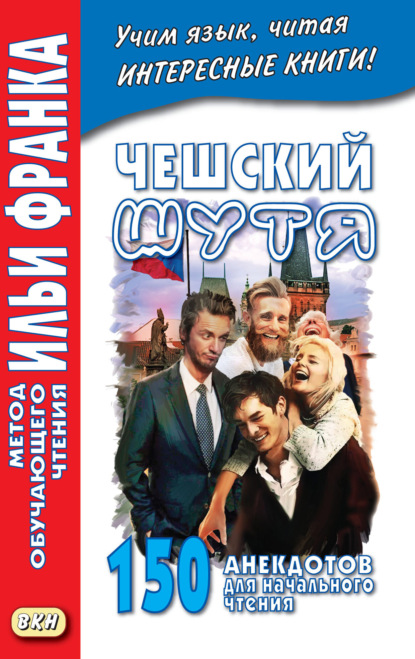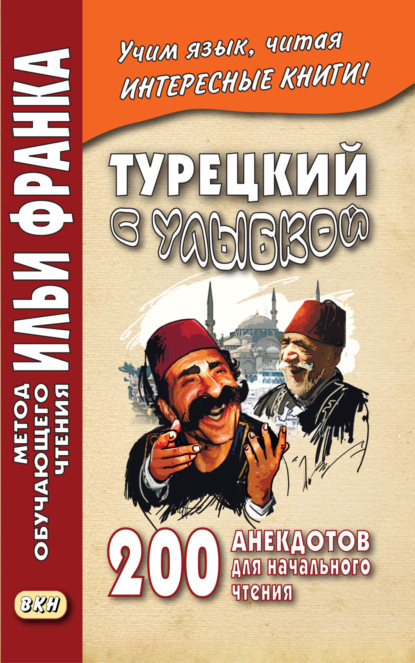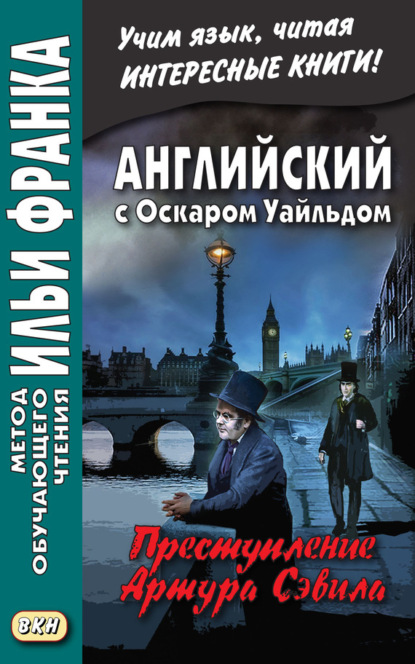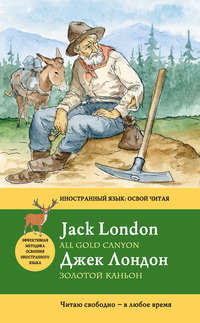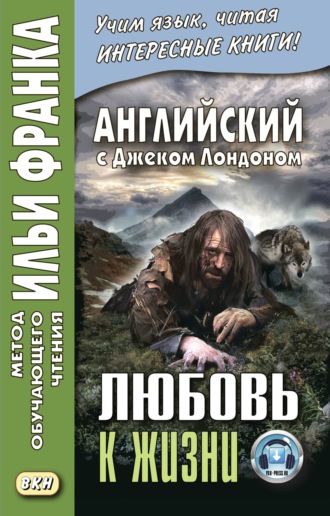
Полная версия
Английский с Джеком Лондоном. Любовь к жизни / Jack London. Love of Live
The man cursed and flung the empty gun from him (человек ругнулся и отбросил от себя пустое ружье; to fling – бросать, метать, кидать, швырять). He groaned aloud as he started to drag himself to his feet (он громко застонал, в то время как начал тащить себя = подниматься на ноги; to drag – тянуть, тащить). It was a slow and arduous task (это была медленная и тяжелая задача; arduous – трудный, тяжелый). His joints were like rusty hinges (его конечности были словно ржавые шарниры). They worked harshly in their sockets (они жестко двигались в своих сочленениях; harshly – резко, жестоко; harsh – жесткий, твердый, грубый; шершавый, шероховатый), with much friction (с большим трением), and each bending or unbending was accomplished only through a sheer exertion of will (и каждое сгибание и разгибание совершалось лишь благодаря большому: «чистому» усилию воли; sheer – абсолютный, полнейший, сущий, явный; чистый, несмешанный). When he finally gained his feet (когда он в конце концов поднялся на ноги), another minute or so was consumed in straightening up (еще одну минуту или около того было потрачено на разгибание = на то, чтобы разогнуться; to consume – расходовать, тратить; to straighten up – разогнуться, выпрямиться), so that he could stand erect as a man should stand (так чтобы он смог стоять вертикально, как положено стоять человеку).
groan [ɡrǝʋn], arduous [‘ɑ:djʋǝs], exertion [ɪɡ’zǝ:ʃn]The man cursed and flung the empty gun from him. He groaned aloud as he started to drag himself to his feet. It was a slow and arduous task. His joints were like rusty hinges. They worked harshly in their sockets, with much friction, and each bending or unbending was accomplished only through a sheer exertion of will. When he finally gained his feet, another minute or so was consumed in straightening up, so that he could stand erect as a man should stand.
He crawled up a small knoll and surveyed the prospect (он заполз на небольшой холмик и осмотрел панораму; to survey – осматривать, обозревать). There were no trees, no bushes (не было ни деревьев, ни кустарников), nothing but a gray sea of moss scarcely diversified by gray rocks, gray lakelets, and gray streamlets (ничего, кроме серого моря мха, в которое почти не вносили разнообразия серые скалы, серые озерца и серые ручейки; scarcely – едва, почти не; to diversify – разнообразить, вносить разнообразие; diverse – иной, отличный от чего-либо, различный; разнообразный). The sky was gray (небо было серым). There was no sun nor hint of sun (не было ни солнца, ни намека на солнце). He had no idea of north (он не имел представления о севере = где север), and he had forgotten the way he had come to this spot the night before (и он забыл путь, которым пришел в это место прошлым вечером). But he was not lost (но он не заблудился: «не был потерян»). He knew that (он знал это). Soon he would come to the land of the little sticks (скоро он придет в край «прутиков»). He felt that it lay off to the left somewhere (он чувствовал, что тот расположен где-то в стороне левее), not far (недалеко) – possibly just over the next low hill (возможно, как раз за следующим низким холмом).
knoll [nǝʋl], scarcely [‘skeǝslɪ], idea [aɪ’dɪǝ]He crawled up a small knoll and surveyed the prospect. There were no trees, no bushes, nothing but a gray sea of moss scarcely diversified by gray rocks, gray lakelets, and gray streamlets. The sky was gray. There was no sun nor hint of sun. He had no idea of north, and he had forgotten the way he had come to this spot the night before. But he was not lost. He knew that. Soon he would come to the land of the little sticks. He felt that it lay off to the left somewhere, not far – possibly just over the next low hill.
He went back to put his pack into shape for travelling (он вернулся, чтобы придать своему тюку форму /подходящую/ для путешествия). He assured himself of the existence of his three separate parcels of matches (он убедился в существовании своих трех отдельных пакетиков спичек), though he did not stop to count them (хотя не остановился, чтобы посчитать их). But he did linger, debating, over a squat moose-hide sack (но он все-таки задержался, задумавшись, над коротким и толстым мешком из шкуры американского лося; to squat – сидеть на корточках; припасть к земле /о животных/; squat – сидящий на корточках /о людях/; припавший к земле /о животных/; короткий и толстый; низкий и широкий; moose – американский лось). It was not large (он был невелик). He could hide it under his two hands (он мог укрыть его под двумя ладонями). He knew that it weighed fifteen pounds (он знал, что тот весит пятнадцать фунтов), – as much as all the rest of the pack (столько же, сколько весь остальной тюк), – and it worried him (и это беспокоило его). He finally set it to one side and proceeded to roll the pack (в конечном счете он отложил его в /одну/ сторону и продолжил сворачивать тюк). He paused to gaze at the squat moose-hide sack (он сделал паузу, чтобы пристально посмотреть на короткий и толстый мешок из шкуры американского лося). He picked it up hastily with a defiant glance about him (он поспешно поднял его с вызывающим взглядом вокруг себя = вызывающе оглянувшись; to defy – бросать вызов), as though the desolation were trying to rob him of it (как будто пустошь пыталась отнять у него его = мешок; desolation – опустошенность, разоренность; заброшенность; одиночество, уединение; одинокость; to rob smb. of smth. – воровать, красть у кого-либо что-либо; отнимать у кого-либо что-либо, лишать кого-либо чего-либо); and when he rose to his feet to stagger on into the day (и когда он поднялся на ноги, чтобы ковылять дальше в день), it was included in the pack on his back (он = мешочек был помещен в рюкзак на спине; to include – включать; включать в себя; заключать; захватить).
assure [ǝ’ʃʋǝ], separate [‘seprɪt], weigh [weɪ]He went back to put his pack into shape for travelling. He assured himself of the existence of his three separate parcels of matches, though he did not stop to count them. But he did linger, debating, over a squat moose-hide sack. It was not large. He could hide it under his two hands. He knew that it weighed fifteen pounds, – as much as all the rest of the pack, – and it worried him. He finally set it to one side and proceeded to roll the pack. He paused to gaze at the squat moose-hide sack. He picked it up hastily with a defiant glance about him, as though the desolation were trying to rob him of it; and when he rose to his feet to stagger on into the day, it was included in the pack on his back.
He bore away to the left (он пошел влево; to bear away – уезжать, отправляться), stopping now and again to eat muskeg berries (время от времени останавливаясь поесть болотных ягод; now and again – иногда: «теперь и снова»; время от времени). His ankle had stiffened (его лодыжка затвердела; to stiffen – застывать, затвердевать; укрепляться; stiff – тугой, негибкий, неэластичный, жесткий), his limp was more pronounced (его хромота стала более ярко выраженной; pronounced – резко выраженный; определенный, отчетливый, четкий, явный, ясный; to pronounce – объявлять; декларировать; заявлять), but the pain of it was as nothing compared with the pain of his stomach (но боль от нее была ничто по сравнению с болью в желудке). The hunger pangs were sharp (муки голода были сильны; pang – внезапная острая боль; муки, страдания; sharp – острый; резкий, сильный /о боли/). They gnawed and gnawed (они терзали и терзали; to gnaw – грызть, глодать; беспокоить, терзать) until he could not keep his mind steady on the course he must pursue to gain the land of little sticks (пока он /уже/ не мог устойчиво удерживать свой разум на курсе, которым он должен следовать, чтобы добраться до края «прутиков»). The muskeg berries did not allay this gnawing (болотные ягоды не ослабляли этих терзаний), while they made his tongue and the roof of his mouth sore with their irritating bite (тогда как они воспаляли его язык и нёбо своей раздражающей едкостью; sore – больной; болезненный, чувствительный; воспаленный; to irritate – вызывать раздражение, воспаление; to bite – кусать; bite – укус; травление /при граверных работах/).
pronounce [prǝ’naʋns], stomach [‘stʌmǝk], gnaw [nɔ:]He bore away to the left, stopping now and again to eat muskeg berries. His ankle had stiffened, his limp was more pronounced, but the pain of it was as nothing compared with the pain of his stomach. The hunger pangs were sharp. They gnawed and gnawed until he could not keep his mind steady on the course he must pursue to gain the land of little sticks. The muskeg berries did not allay this gnawing, while they made his tongue and the roof of his mouth sore with their irritating bite.
He came upon a valley (он натолкнулся на лощину; to come upon – натолкнуться на что-либо, неожиданно найти что-либо) where rock ptarmigan rose on whirring wings from the ledges and muskegs (где с /каменных/ уступов и торфяной почвы поднялись на хлопающих крыльях скальные белые куропатки; to rise – подниматься, вставать). Ker – ker – ker was the cry they made («кыр-кыр-кыр» было криком, который они издавали). He threw stones at them (он бросал по ним камнями; to throw – бросать), but could not hit them (но не мог попасть в них; to hit – ударять; поражать; попадать в цель). He placed his pack on the ground and stalked them as a cat stalks a sparrow (он положил ранец на землю и стал подкрадываться к ним, как кот подкрадывается к воробью). The sharp rocks cut through his pants’ legs (острые камни прорезали: «резали сквозь» его штанины) till his knees left a trail of blood (пока его колени не оставили = не стали оставлять кровавую дорожку); but the hurt was lost in the hurt of his hunger (но эта боль потерялась в боли от его голода). He squirmed over the wet moss (он двигался, извиваясь, по мокрому мху; to squirm – извиваться, изгибаться; двигаться извиваясь /как змея, червяк/), saturating his clothes and chilling his body (пропитывая /водой/ одежду и охлаждая тело; to saturate – насыщать, пропитывать); but he was not aware of it (но он не осознавал этого; aware of – осознающий /что-либо/), so great was his fever for food (так велико было его нервное возбуждение /в погоне/ за пищей; fever – лихорадка). And always the ptarmigan rose, whirring, before him (а белые куропатки все время поднимались, вспархивая с шелестом крыльев перед ним; to whirr – проноситься с шумом, свистом; вспархивать /с шумом/), till their ker – ker – ker became a mock to him (пока их «кыр-кыр-кыр» не стало насмешкой над ним), and he cursed them and cried aloud at them with their own cry (и он проклинал их и кричал во все горло на них их /же/ собственным криком; aloud – вслух; во весь голос, громко, громогласно; loud – громкий).
ptarmigan [‘tɑ:mɪɡǝn], stalk [stɔ:k], blood [blʌd]He came upon a valley where rock ptarmigan rose on whirring wings from the ledges and muskegs. Ker – ker – ker was the cry they made. He threw stones at them, but could not hit them. He placed his pack on the ground and stalked them as a cat stalks a sparrow. The sharp rocks cut through his pants’ legs till his knees left a trail of blood; but the hurt was lost in the hurt of his hunger. He squirmed over the wet moss, saturating his clothes and chilling his body; but he was not aware of it, so great was his fever for food. And always the ptarmigan rose, whirring, before him, till their ker – ker – ker became a mock to him, and he cursed them and cried aloud at them with their own cry.
Once he crawled upon one that must have been asleep (однажды он наткнулся на одну, которая, наверное, спала). He did not see it till it shot up in his face from its rocky nook (он не видел ее, пока она не взлетела ему в лицо из своего скального укрытия; to shoot up – вскочить, взлететь; nook – угол; укромный уголок, закоулок; глухое, удаленное место). He made a clutch as startled as was the rise of the ptarmigan (он хватанул так же испуганно, как взлетела куропатка; clutch – сжатие; захват; to clutch – схватить; зажать), and there remained in his hand three tail-feathers (и в его руке остались три хвостовых пера). As he watched its flight he hated it (наблюдая за ее полетом, он ненавидел ее), as though it had done him some terrible wrong (как будто она сделала = причинила ему какое-то ужасное зло; wrong – зло, несправедливость). Then he returned and shouldered his pack (потом он вернулся и взвалил на плечи свой вьюк).
As the day wore along he came into valleys or swales (по мере продвижения дня он вступал в долины или болотистые низины; to wear – тянуться, проходить /о времени/) where game was more plentiful (где дичь была более обильна = которые более изобиловали дичью). A band of caribou passed by (стадо карибу прошло мимо), twenty and odd animals (двадцать с лишним животных), tantalizingly within rifle range (дразняще в пределах дальности /выстрела из/ ружья). He felt a wild desire to run after them (он почувствовал дикое желание побежать за ними), a certitude that he could run them down (уверенность, что он сможет догнать их; to run down – догнать, настигнуть). A black fox came toward him (черный песец бежал в его сторону), carrying a ptarmigan in his mouth (неся в пасти куропатку). The man shouted (человек закричал). It was a fearful cry (это был страшный крик), but the fox, leaping away in fright (но песец, отпрыгнув в испуге), did not drop the ptarmigan (не выронил куропатку).
feather [‘feðǝ], wrong [rɒŋ], rifle [raɪfl]Once he crawled upon one that must have been asleep. He did not see it till it shot up in his face from its rocky nook. He made a clutch as startled as was the rise of the ptarmigan, and there remained in his hand three tail-feathers. As he watched its flight he hated it, as though it had done him some terrible wrong. Then he returned and shouldered his pack.
As the day wore along he came into valleys or swales where game was more plentiful. A band of caribou passed by, twenty and odd animals, tantalizingly within rifle range. He felt a wild desire to run after them, a certitude that he could run them down. A black fox came toward him, carrying a ptarmigan in his mouth. The man shouted. It was a fearful cry, but the fox, leaping away in fright, did not drop the ptarmigan.
Late in the afternoon he followed a stream (в конце второй половины дня он пошел за ручьем), milky with lime (мутным от осадка; lime – известь; накипь, осадок, окалина /от жесткой воды/), which ran through sparse patches of rush-grass (который бежал через = среди редких участков тростника). Grasping these rushes firmly near the root (крепко схватив этот тростник у корня), he pulled up what resembled a young onion-sprout no larger than a shingle-nail (он вырвал то, что походило на молодой побег лука величиной не более гонтового гвоздя; to pull up – вытягивать, выдергивать наверх). It was tender (он был мягким; tender – мягкий, нежный), and his teeth sank into it with a crunch that promised deliciously of food (и его зубы погрузились в него с хрустом, который восхитительно сулил пищу; to promise – подавать надежды; сулить, предвещать; to sink – погружаться). But its fibers were tough (но его волокна были жесткими). It was composed of stringy filaments saturated with water (он состоял из жилистых волокон, насыщенных водой), like the berries (как ягоды), and devoid of nourishment (и /был/ лишен питательных веществ; devoid of – лишенный, не имеющий). He threw off his pack and went into the rush-grass on hands and knees (он сбросил тюк и влез в тростник на четвереньках: «на руках и коленях»), crunching and munching (хрустя и чавкая), like some bovine creature (как какая-то корова; bovine – коровий, бычий; creature – создание; животное, тварь; to create – творить).
resemble [rɪ’zembl], onion [‘ʌnjǝn], creature [‘kri:ʧǝ]Late in the afternoon he followed a stream, milky with lime, which ran through sparse patches of rush-grass. Grasping these rushes firmly near the root, he pulled up what resembled a young onion-sprout no larger than a shingle-nail. It was tender, and his teeth sank into it with a crunch that promised deliciously of food. But its fibers were tough. It was composed of stringy filaments saturated with water, like the berries, and devoid of nourishment. He threw off his pack and went into the rush-grass on hands and knees, crunching and munching, like some bovine creature.
He was very weary and often wished to rest (он очень устал и часто хотел отдохнуть) – to lie down and sleep (лечь и поспать); but he was continually driven on (но его постоянно гнало вперед; driven – гонимый; to drive – гнать) – not so much by his desire to gain the land of little sticks as by his hunger (не столько желание добраться до земли «прутиков», сколько голод). He searched little ponds for frogs (он обыскивал маленькие запруды в поисках лягушек) and dug up the earth with his nails for worms (и рыл землю ногтями в поисках червей; to dig up – выкапывать, вырывать), though he knew in spite that neither frogs nor worms existed so far north (несмотря на то, что он знал, что ни лягушки, ни червяки не живут так далеко на севере; in spite of – несмотря на; to exist – существовать; иметься в природе, жить).
He looked into every pool of water vainly (он тщетно заглядывал в каждую лужу воды), until, as the long twilight came on (пока с приближением долгих сумерек; to come on – наступать, приближаться /о времени дня или года/), he discovered a solitary fish (он не обнаружил одинокую рыбку), the size of a minnow, in such a pool (размером с гольяна, в такой луже). He plunged his arm in up to the shoulder (он погрузил руку до плеча; to plunge in – погружать/ся/, окунать/ся/), but it eluded him (но она ускользнула от него; to elude – избежать, спастись; избавиться; выскользнуть). He reached for it with both hands (он потянулся за ней обеими руками; to reach for – тянуться за) and stirred up the milky mud at the bottom (и взбаламутил мутный ил на дне; to stir up – хорошенько размешивать, взбалтывать; трясти; сотрясать; вспенивать). In his excitement he fell in (в возбуждении он упал в /воду/; to fall in – падать в /что-либо/), wetting himself to the waist (промокнув: «намочив себя» до пояса; to wet – промокнуть, вымокнуть). Then the water was too muddy to admit of his seeing the fish (потом вода стала слишком мутной, чтобы позволить ему видеть рыбу), and he was compelled to wait until the sediment had settled (и он был вынужден подождать, пока не уляжется осадок; to settle – отстаиваться, оседать; to compel – заставлять, вынуждать).
search [sǝ:ʧ], exist [ɪɡ’zɪst], compel [kǝm’pel]He was very weary and often wished to rest – to lie down and sleep; but he was continually driven on – not so much by his desire to gain the land of little sticks as by his hunger. He searched little ponds for frogs and dug up the earth with his nails for worms, though he knew in spite that neither frogs nor worms existed so far north.
He looked into every pool of water vainly, until, as the long twilight came on, he discovered a solitary fish, the size of a minnow, in such a pool. He plunged his arm in up to the shoulder, but it eluded him. He reached for it with both hands and stirred up the milky mud at the bottom. In his excitement he fell in, wetting himself to the waist. Then the water was too muddy to admit of his seeing the fish, and he was compelled to wait until the sediment had settled.
The pursuit was renewed (преследование было возобновлено = возобновилось), till the water was again muddied (пока вода снова не замутилась; mud – грязь, слякоть; ил, тина; muddy – грязный). But he could not wait (но он не мог ждать). He unstrapped the tin bucket and began to bale the pool (он отвязал оловянное ведро и начал вычерпывать лужу). He baled wildly at first (сначала он вычерпывал исступленно; wild – дикий), splashing himself and flinging the water so short a distance (забрызгивая себя и выплескивая воду на таком близком расстоянии) that it ran back into the pool (что она стекала обратно в лужу). He worked more carefully (он заработал более осторожно), striving to be cool (стремясь сохранять хладнокровие; cool – прохладный; невозмутимый, хладнокровный; неторопливый, спокойный /о человеке и его действиях/), though his heart was pounding against his chest and his hands were trembling (хотя его сердце сильно билось в груди, а руки дрожали). At the end of half an hour the pool was nearly dry (в конце = по истечении получаса лужа была почти сухой). Not a cupful of water remained (не осталось и чашки воды). And there was no fish (но не было и рыбы). He found a hidden crevice among the stones (он нашел скрытую расщелину среди камней) through which it had escaped to the adjoining and larger pool (через которую она ускользнула в прилегающую и бóльшую заводь; to escape – бежать, совершать побег; ускользать, избегать) – a pool which he could not empty in a night and a day (заводь, которую он не смог бы осушить за сутки: «за ночь и день»). Had he known of the crevice (если бы он знал об этой расщелине), he could have closed it with a rock at the beginning (он мог бы перекрыть ее камнем в /самом/ начале) and the fish would have been his (и рыба была бы его = и рыба досталась бы ему).
pursuit [pǝ’sju:t], crevice [‘krevɪs], night [naɪt]The pursuit was renewed, till the water was again muddied. But he could not wait. He unstrapped the tin bucket and began to bale the pool. He baled wildly at first, splashing himself and flinging the water so short a distance that it ran back into the pool. He worked more carefully, striving to be cool, though his heart was pounding against his chest and his hands were trembling. At the end of half an hour the pool was nearly dry. Not a cupful of water remained. And there was no fish. He found a hidden crevice among the stones through which it had escaped to the adjoining and larger pool – a pool which he could not empty in a night and a day. Had he known of the crevice, he could have closed it with a rock at the beginning and the fish would have been his.


